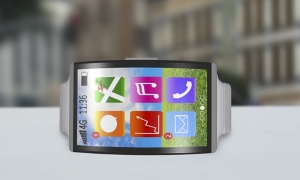Sign up for our free daily newsletter
YOUR PRIVACY - PLEASE READ CAREFULLY DATA PROTECTION STATEMENT
Below we explain how we will communicate with you. We set out how we use your data in our Privacy Policy.
Global City Media, and its associated brands will use the lawful basis of legitimate interests to use
the
contact details you have supplied to contact you regarding our publications, events, training,
reader
research, and other relevant information. We will always give you the option to opt out of our
marketing.
By clicking submit, you confirm that you understand and accept the Terms & Conditions and Privacy Policy
The UK Court of Appeal has reversed the finding of the High Court, ruling that AI outfit Emotional Perception’s artificial neural network (ANN) is ineligible for patent protection under UK patent law, reaffirming the status quo when considering the eligibility of an AI system for patent protection.
In the judgment Comptroller-General of Patents, Designs and Trade Marks v Emotional Perception AI Limited, handed down by Lord Justice Colin Birss on 19 July, the patent, which relates to making recommendations for media files, was held to be a computer program and therefore ineligible for patent protection under UK patent law.
Birss said in the judgment that “exclusion from patentability of a program for a computer as such in s1(2) of the 1977 Act is engaged in this case.”
He stated: "However it is implemented, such a machine is clearly a computer – it is a machine for processing information. Focussing on the weights of an ANN, in my judgment irrespective of the manner in which an ANN is implemented (hardware or software), the Comptroller is right that these weights are a computer program."
Commenting on the judgment, Conor McLaughlin, managing associate at Mishcon de Reya, said that the High Court decision had been “widely welcomed in the industry as opening the way for patenting of AI-based inventions, seemingly being a first and significant step in lowering the traditionally high bar for protection of such inventions in the UK.”
He added: “The Court of Appeal's decision would seem to return that bar firmly back to its previous position, and reaffirm the status quo that it remains difficult (though certainly not impossible) to obtain protection for AI-based inventions within the UK.”
The patent was initially refused by the UK Intellectual Property Office (UK IPO) examiner on the basis that it was for a program for a computer and did not provide for a technical contribution, applying the well-established, and relatively strict, tests for considering software patents.
At the UK High Court in November, however, Sir Antony Mann found in favour of Emotional Perception holding that no computer program was involved at all, at least for a hardware implemented ANN, and therefore the exclusion had no application. The judge also held that even if the provisions did apply, the subject matter was not excluded.
McLaughlin pointed out that the appeals court also commented (though did not finally decide) that even if the invention was not excluded as a computer program as such, “it may well have been excluded in any event as relating to a 'mathematical method as such’."
A discovery, scientific theory or mathematical method is also excluded from patentability.
The High Court decision in November blew open the UK’s approach to ANN patentability and prompted the UK IPO to revise its guidance related to AI networks and subject matter patentability.
The UK IPO was represented by 11 South Square’s Brian Nicholson KC and Anna Edwards-Stuart KC (instructed by Government Legal Department). Emotional Perception was represented by 8 New Square’s Mark Chacksfield KC and Edmund Eustace (instructed by boutique IP practice Hepworth Browne).
Email your news and story ideas to: [email protected]












